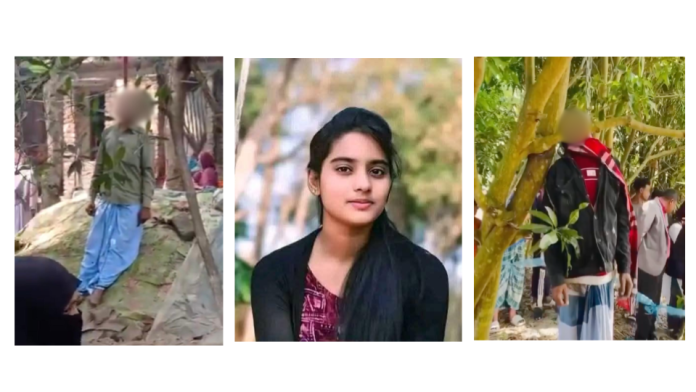In a nation that claims to uphold secularism, the horrifying treatment of Hindus in Bangladesh paints a starkly different picture. A wave of anti-Hindu violence has yet again shattered any illusions of minority safety under Muhammad Yunus’s government. In three separate incidents of barbarism, Hindus have been murdered, raped, and forced into religious conversions, exposing the systemic failure—and complicity—of the Bangladeshi state.
The latest horror unfolded in Dubachail village, Brahmanbaria district, where Dipal Chakraborty, a Hindu man, was brutally murdered and his body hung from a tree in front of his home. Despite clear signs of foul play, the local police shamefully labeled the incident a suicide, further humiliating the victim’s family and shielding the perpetrators.
In yet another vile act, a young Hindu girl, Simu Mahanta, was abducted, raped, and forcibly converted to Islam. Such atrocities against Hindu women have become alarmingly common, with no visible efforts by the government to curb the menace. Instead, the administration’s silence has emboldened these predators, who operate with impunity.
Adding to this cascade of horrors, another Hindu man in Madaripur was found dead under suspicious circumstances, further stoking fears of targeted violence against the community. These incidents are not isolated—they are part of a well-established pattern of systematic persecution aimed at erasing Hindu identity in Bangladesh.
Muhammad Yunus’s government has not just failed to safeguard its minorities; it has actively enabled their suffering. The police and local administrations have become puppets in the hands of Islamist forces, whitewashing heinous crimes and suppressing evidence to shield the perpetrators. This criminal negligence is not just incompetence—it is a deliberate strategy to appease extremist factions and maintain political power at the expense of innocent lives.
The world must wake up to the horrors unfolding in Bangladesh and call for immediate action against a government that has long abandoned its duty to protect its most vulnerable citizens.

